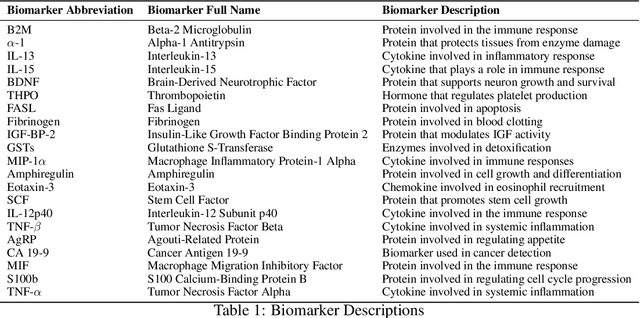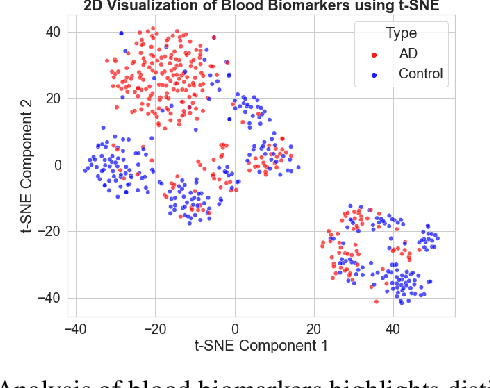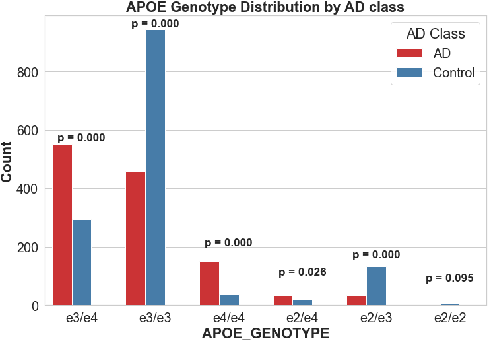John Broussard
Graph-Based Biomarker Discovery and Interpretation for Alzheimer's Disease
Nov 27, 2024



Abstract:Early diagnosis and discovery of therapeutic drug targets are crucial objectives for the effective management of Alzheimer's Disease (AD). Current approaches for AD diagnosis and treatment planning are based on radiological imaging and largely inaccessible for population-level screening due to prohibitive costs and limited availability. Recently, blood tests have shown promise in diagnosing AD and highlighting possible biomarkers that can be used as drug targets for AD management. Blood tests are significantly more accessible to disadvantaged populations, cost-effective, and minimally invasive. However, biomarker discovery in the context of AD diagnosis is complex as there exist important associations between various biomarkers. Here, we introduce BRAIN (Biomarker Representation, Analysis, and Interpretation Network), a novel machine learning (ML) framework to jointly optimize the diagnostic accuracy and biomarker discovery processes to identify all relevant biomarkers that contribute to AD diagnosis. Using a holistic graph-based representation for biomarkers, we highlight their inter-dependencies and explain why different ML models identify different discriminative biomarkers. We apply BRAIN to a publicly available blood biomarker dataset, revealing three novel biomarker sub-networks whose interactions vary between the control and AD groups, offering a new paradigm for drug discovery and biomarker analysis for AD.
 Add to Chrome
Add to Chrome Add to Firefox
Add to Firefox Add to Edge
Add to Edge